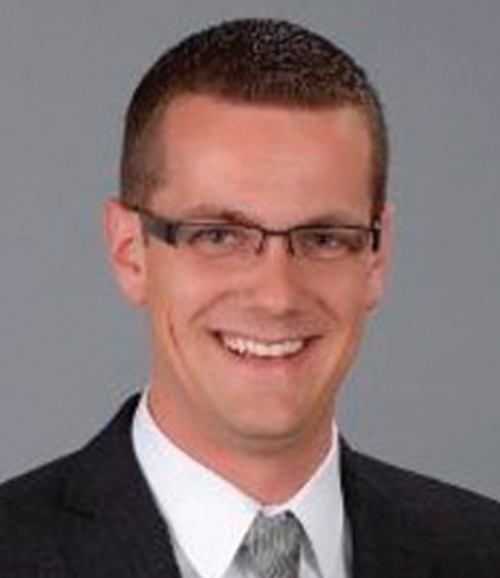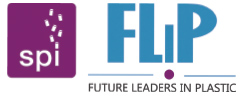The FLIP Files
Previous Article Next Article
The FLIP Files
Previous Article Next Article
The FLIP Files
Previous Article Next Article

The FLiP Files is a series spotlighting young professionals who are active in SPI’s Future Leaders in Plastics (FLiP), a group for plastics professionals under the age of 40. For this first entry, we spoke to FLiP chairman Michael Stark, of Wittmann Battenfeld.
SPI: Where do you work and what’s your title?
Stark: Divisional manager, Material Handling and Auxiliaries for Wittmann Battenfeld, Inc.
SPI: Tell us a little about what your company does.
Stark: The Wittmann Battenfeld Group is one of the largest manufacturers of injection molding machines, robots, automation systems, and auxiliaries for the plastics industry worldwide.
SPI: How did you find yourself working in the plastics industry?
Stark: It all started with a good paying internship at Ball Corporation when I was in college. They injection-molded preforms and stretch blow-molded Pepsi bottles. I was not familiar with the plastics industry prior. I remember getting goosebumps standing in front of some large injection molding machines, and I’ve been obsessed with this industry ever since.
SPI:Has anyone in the industry mentored you?
Stark: Naturally it’s been my boss, our U.S. president, David Preusse, and our global CEO Michael Wittmann.
SPI:Describe in one sentence what you do on an average day.
Stark: One sentence would look like this: “There is no average day.” And that’s what I love most about what I do. There is such a range of things I’m involved in. It keeps me fresh and motivated, all the time. I handle large contract negotiations and staff management of 30-plus people, all the way down to getting my hands dirty on top of machinery at a customer’s facility, and everything in between.
SPI:What do you like most about working in the plastics industry?
Stark: Hands down it’s the people. This industry has some of the most exciting, diverse, humble, and hardworking individuals I’ve ever met. I left the industry for a short clip and ended up coming back for more. Second to that, it’s tangible. I can put my hands on what I’ve done.
SPI:What’s one thing about your personal life that you feel has been changed by having a career in plastics?
Stark: There hasn’t been much of a deep-rooted change in my personal life, I feel; I’ve always been the same “Type-A” kind of guy. However, I will say that I’m a plastics advocate with friends and family as a result. I’m always checking labels on products to see if my company was involved in the equipment or the project. I’m always preaching about proper recycling at home and wherever I go. I’m always the one picking plastic plates out of the trash at a family BBQ and putting them in the recycling, explaining why and what to look for. Heaven forbid a generalist friend or family member gets me going on plastics being bad!
SPI:What are the major challenges you think are facing the plastics industry today? How do you think the industry can overcome them?
Stark: Really big picture is the image of the industry. Forget about increased fuel economy by lightweighting cars with plastics, or saving some lives with a new plastic implantable or device. All of that good is easily outweighed [by] the minute someone Instagrams a picture of plastic litter. I often wonder if they picked the litter up after they took the picture? This image has trickled down into the younger labor force and has aided in creating the skills gap we face in plastics, and all manufacturing in the USA.
The only way around it is for the industry to collectively stand up and advocate and educate the public, and promote the industry. It helps everyone in the chain, from the molding shop looking to hire some fresh talent, all the way to the consumer of a plastic product. Initiatives like FLiP are a great start.
SPI:Why do you think someone from your generation should consider a career in plastics?
Stark: It’s exciting, action packed, fast moving, challenging, and rewarding. If you want to be a part of something that touches everyone’s lives, and be on a team of great people, then get involved! If you roll out of bed aspiring to have a dry 8-5 [day] staring at a computer monitor, not making much of an impact, then this might not be for you.
SPI:What’s one plastic product you couldn’t live without?
Stark: Tough question! I couldn’t type my response without this plastic keyboard … I just got a phone call from a customer on my plastic phone, crunched some numbers for him on my plastic calculator, and that’s just the last five minutes of my life. On a more personal level, I couldn’t live without my daughter, who wouldn’t be here if it weren’t for plastics being involved in her eight days of NICU care when she was born.

